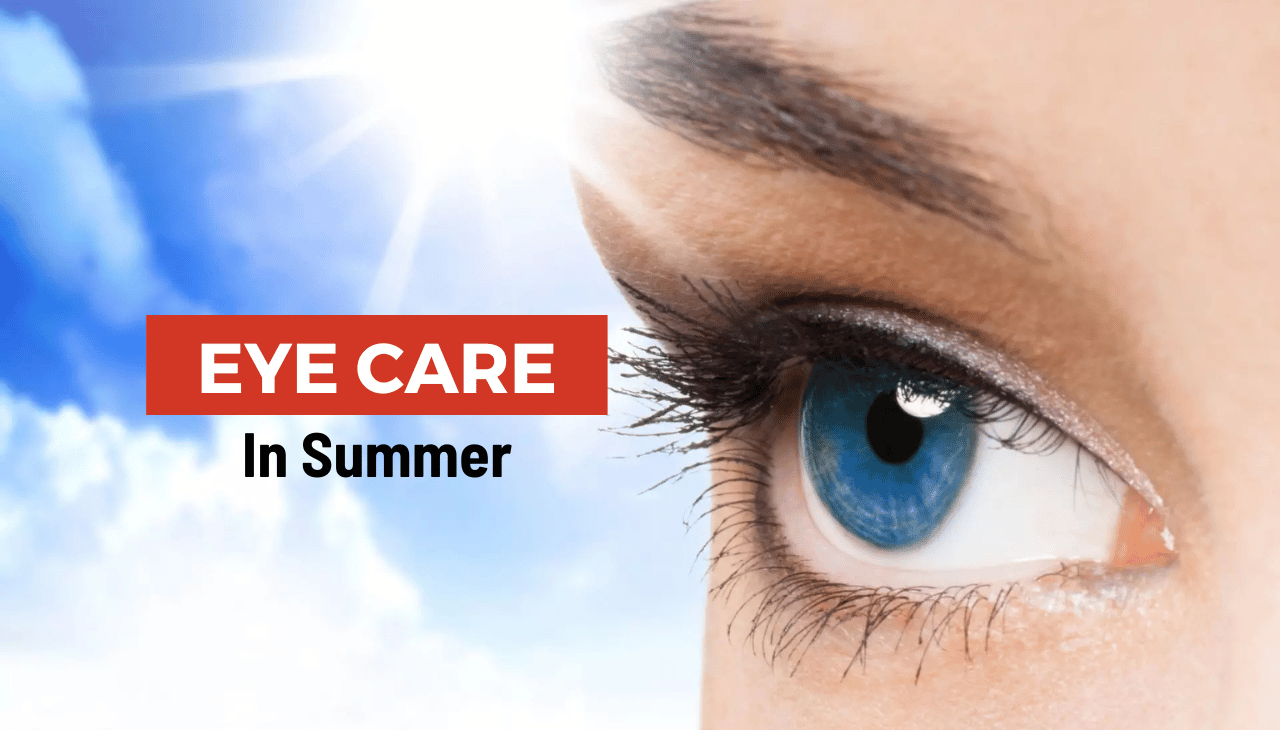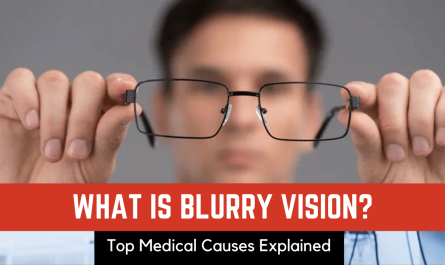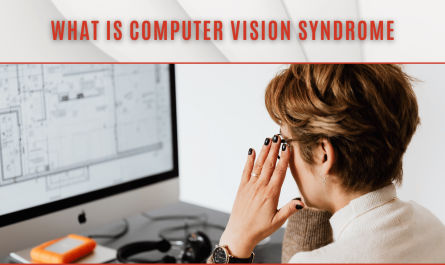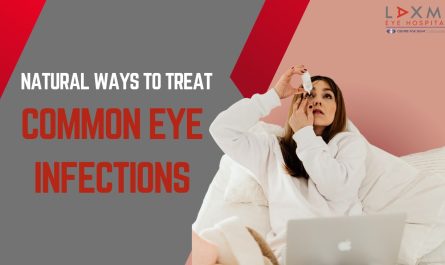Introduction
Summer brings longer days, bright sunlight, and rising temperatures. While most people take precautions like wearing sunscreen and staying hydrated, eye care often gets overlooked.
Your eyes are highly sensitive to heat and ultraviolet (UV) radiation. Constant exposure without protection can lead to dryness, irritation, and even long-term damage.
In this blog, you’ll learn how summer affects your eyes, signs you should watch out for, and simple steps you can take to keep your vision safe by taking Eye care in Summer.
What Happens to Your Eyes in Summer?
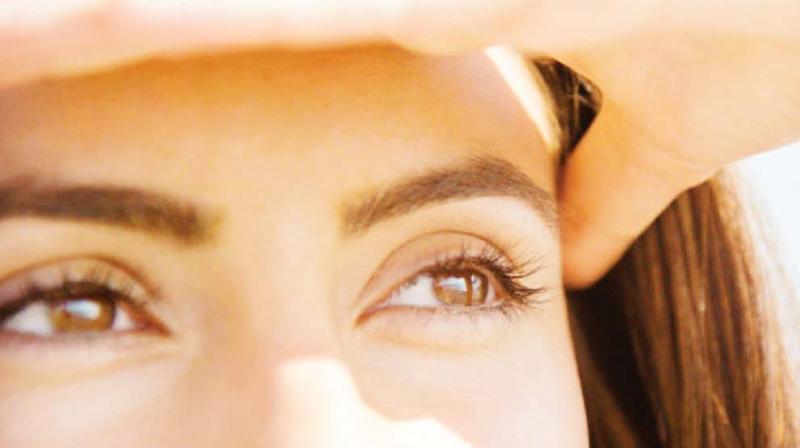
The sun emits UVA and UVB rays that directly impact your eye health. Exposure over time can damage the surface and internal parts of the eye.
UV Radiation
These rays are invisible but powerful. UVB affects the front part of the eye, while UVA can reach the retina. Overexposure can lead to cataracts and age-related macular degeneration (AMD).
Heat and Dry Air
Warm weather can dry out the tear film, which protects your eyes. Air conditioning also reduces humidity, increasing dryness and discomfort.
Increased Dust and Allergens
Summer often kicks up more pollen and dust. These particles irritate the eyes and can trigger allergic reactions or infections.
Summer-Related Eye Issues You Should Know
Ignoring eye protection in summer can lead to several conditions. Some are temporary, while others can have lasting effects.
Dry Eyes
Hot weather, wind, and AC systems can all strip moisture from your eyes, causing itchiness, redness, and blurred vision.
Photokeratitis
Also known as “sunburn of the eye,” this condition results from intense UV exposure. It causes pain, light sensitivity, and a gritty feeling.
Eye Allergies
Common symptoms include watery eyes, itching, swelling, and redness. Allergies can worsen in areas with high pollen or pollution levels.
Pinguecula and Pterygium
These are non-cancerous growths on the white of the eye caused by UV exposure. They can interfere with vision if left untreated.
Cataracts and Macular Degeneration
Prolonged UV exposure may speed up the development of cataracts or AMD—two leading causes of vision loss with age.
How to Take Summer Eye Care
You can avoid most summer eye problems with a few mindful habits. Focus on prevention and care.
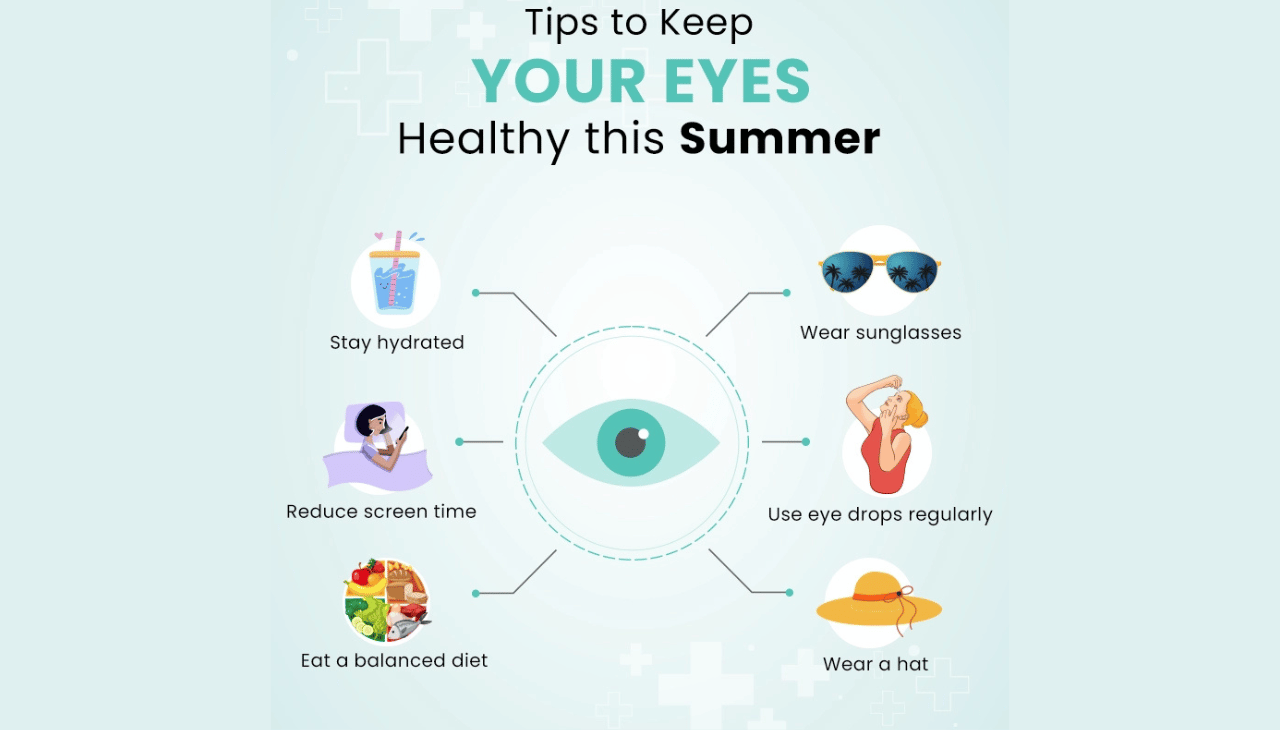
Wear Sunglasses with UV Protection
Choose sunglasses that block 100% UVA and UVB rays. Wraparound styles provide the most coverage. Look for UV400 labels while buying.
Use a Wide-Brimmed Hat
A hat with at least a 3-inch brim shields your eyes from direct sunlight and reduces glare.
Stay Hydrated
Dehydration affects your body and your eyes. Drink enough water to maintain healthy tear production.
Limit Sun Exposure During Peak Hours
The sun is strongest between 10 a.m. and 4 p.m. Try to stay indoors or in shaded areas during this time.
Use Lubricating Eye Drops
Artificial tears help reduce dryness and soothe irritation, especially if you’re indoors with AC or outdoors in dusty areas.
Avoid Rubbing Your Eyes
If your eyes itch or burn, use a cold compress instead. Rubbing can worsen irritation or introduce germs.
Practice Good Hygiene
Wash your hands before touching your eyes or applying contact lenses. Avoid sharing eye makeup or personal items.
Expert Tips for Better Summer Eye Care
To maintain healthy vision throughout the season, consider these additional insights from eye care in summer specialists:
Follow the 20-20-20 Rule
If you work long hours on screens, take a break every 20 minutes. Look at something 20 feet away for 20 seconds to reduce eye strain.
Go for Regular Eye Checkups
Get your eyes checked at least once a year—especially if you have allergies, diabetes, or wear glasses/contact lenses.
Protect Your Eyes While Swimming
Chlorinated water can irritate your eyes. Use swim goggles in pools and avoid opening your eyes underwater.
Don’t Skip Your Glasses or Contact Care
Wearing prescription glasses with UV protection is a bonus. If you wear contacts, keep them clean and moist, and avoid overuse.
Eye Consultation with Experts in Mumbai
Laxmi Eye Hospital is one of Mumbai’s most trusted names in eye care for over 30 years. Known for offering advanced diagnostic and treatment solutions, it houses some of the region’s most experienced eye specialists.
From routine vision checkups to advanced treatments like LASIK and retina care, Laxmi Eye Hospital provides it all under one roof. It has clinics in Panvel, Kharghar, Kamothe, and Dombivli, making expert eye care easily accessible across Navi Mumbai.
Their specialties include:
- Specs Removal / LASIK (Bladeless LASIK, ICL, IPCL, Contoura Vision LASIK)
- Cataract Surgery
- Glaucoma Management
- Diabetic Eye Treatment
- Cornea Clinic (Common Corneal Disease, Keratoconus, Eye Donation)
- Retina Treatment
- Pediatric Ophthalmology
Clinic Locations
Dombivli:
1st Floor, Laxmi Eye Institute, SS Business Park, Gharda Circle, Azde Gaon, Tata Power Co. Ltd., Dombivli East, Maharashtra 421201
Kharghar:
Office 108–110, 1st Floor, Anant CHS Plot 31, Sector 04, Kharghar, Navi Mumbai, Maharashtra 410210
Panvel:
Mulla Hamid Rd, Old Panvel, Navi Mumbai, Maharashtra 410206
Kamothe:
Shop No 26/27, Near ICICI Bank, Pratik Gardens, Sector 34, Kamothe, Navi Mumbai, Maharashtra 410209
To book your appointment, call or walk into your nearest branch.
FAQs
1. Can UV rays cause permanent eye damage?
Yes. Long-term exposure can lead to cataracts, AMD, and damage to the cornea and retina.
2. Are regular sunglasses enough to protect my eyes?
No. Only sunglasses labeled UV400 or with 100% UVA and UVB protection provide adequate defense.
3. Why do my eyes feel dry in air-conditioned rooms?
AC reduces humidity, which dries out your tear film. Use artificial tears and stay hydrated.
4. Can I use any eye drop for irritation?
No. Use only preservative-free lubricating drops unless prescribed otherwise. Avoid steroid drops without consultation.
5. How can I tell if my child’s eyes are affected by the sun?
Watch for signs like frequent blinking, squinting, rubbing eyes, or complaints of discomfort after outdoor play.
6. Is it safe to swim with contact lenses?
No. Swimming with lenses can cause infections. Use swimming goggles or remove lenses before swimming.
7. How often should I get my eyes checked in summer?
If you experience symptoms or wear lenses, consider visiting an eye specialist. Otherwise, once a year is ideal.
8. Can children wear sunglasses?
Yes. Children’s eyes are more sensitive to UV rays. Choose well-fitting sunglasses with UV protection.
Conclusion
Your eyes deserve just as much care as your skin during summer. A few simple changes in your daily routine can protect your vision from UV rays, heat, and dryness.
Stay aware of symptoms, use proper eye protection, and keep your eyes hydrated. And if you notice anything unusual, don’t wait.
Visit your nearest Laxmi Eye Hospital clinic and let expert ophthalmologists guide you to better eye health.

